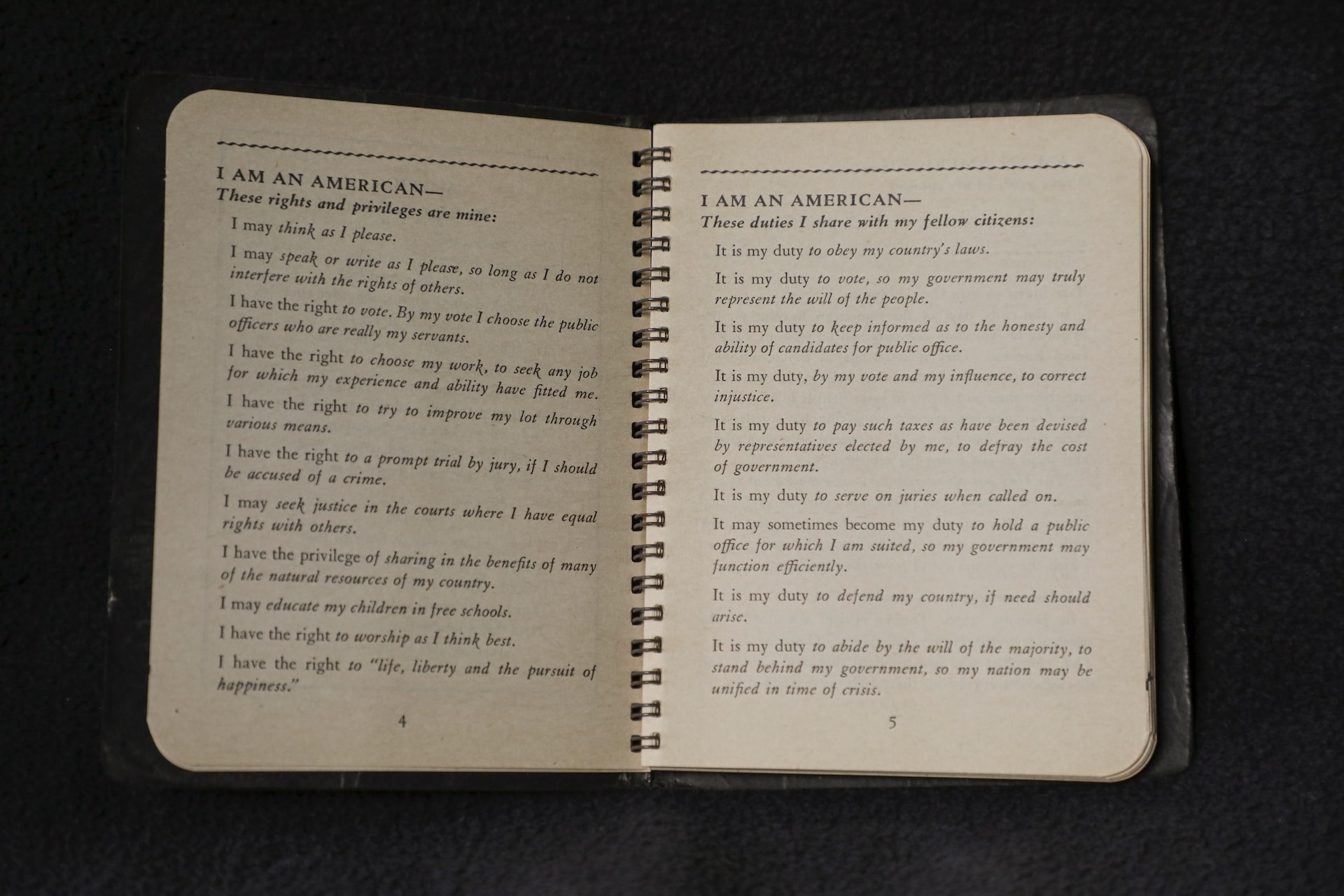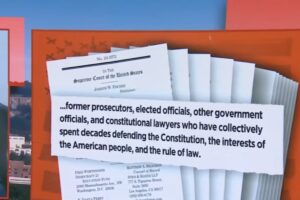
When you make purchases through our links we may earn a small commission.

Photo Credit: Mick Haupt
Put It On Your Wall: CanvasOnDemand.com
Introduction
The 14th Amendment to the United States Constitution is a crucial document that addresses various issues related to citizenship, equal protection under the law, and the consequences of rebellion against the United States. One of its less explored sections, Section 3, has recently come under scrutiny due to its potential implications for the political future of former President Donald Trump. This article will examine how the 14th Amendment, Section 3, may disqualify Trump from running for the presidency due to his involvement in an attempt to subvert the 2020 election, and how he could potentially become eligible again if a significant majority in Congress votes to do so.
Section 3 of the 14th Amendment
The 14th Amendment, Section 3, reads as follows: “No person shall be a Senator or Representative in Congress, or elector of President and Vice President, or hold any office, civil or military, under the United States, or under any State, who, having previously taken an oath, as a member of Congress, or as an officer of the United States, or as a member of any State legislature, or as an executive or judicial officer of any State, to support the Constitution of the United States, shall have engaged in insurrection or rebellion against the same, or given aid or comfort to the enemies thereof.”
Donald Trump's Involvement in the 2020 Election Controversy
Donald Trump’s presidency concluded amidst controversy, with his supporters storming the U.S. Capitol on January 6, 2021, following his persistent claims of election fraud and calls to overturn the 2020 presidential election results. Many argue that these actions constituted an attempt to subvert the peaceful transition of power, a fundamental pillar of American democracy. Section 3 of the 14th Amendment explicitly mentions engaging in insurrection or rebellion as disqualifying conduct, and it is clear that no prior criminal conviction is required for disqualification. Trump’s efforts to overturn a legitimate election fall within the ambit of this clause.
The Potential Disqualification of Donald Trump
Section 3 of the 14th Amendment lays out a definitive framework for disqualification from public office. If it is determined that Donald Trump’s actions regarding the 2020 election fall under the definition of “engaging in insurrection or rebellion,” this could lead to his disqualification from running for the presidency or holding any other public office. Notably, the language of Section 3 leaves no room for ambiguity regarding the potential consequences for individuals involved in such activities, and it does not necessitate a prior criminal conviction for disqualification.
The Path to Redemption
While Section 3 of the 14th Amendment imposes disqualification, it also provides a route to redemption. It states that those disqualified can be reinstated if two-thirds of each house of Congress votes in favor of removing the disqualification. This provision underscores the principle that if a significant majority in Congress believes that an individual should be allowed to run for office again, they have the authority to lift the ban.
Conclusion
The 14th Amendment, Section 3, presents a clear and consequential provision in American constitutional law. It is vital to recognize that this section does not require a prior criminal conviction for disqualification. Whether it applies to former President Donald Trump’s involvement in the 2020 election controversy remains a matter of legal interpretation and debate. Section 3 not only has the potential to disqualify individuals from public office but also offers a mechanism for their redemption, contingent on a significant majority in Congress. The fate of Donald Trump’s political future may ultimately depend on how the American legal and political system interprets and applies this provision.
You’ll get more articles like this – and our favorite promotional offers delivered straight to your inbox.
By submitting this form you agree to our terms and conditions. You can unsubscribe at any time.


Video: Rae Fitness MARIEMUR Bold Luxury Looks Try-On Haul

GFYG: FashionNova New Year 2024 Haul! ♡ | Raven Wood Try-On


































